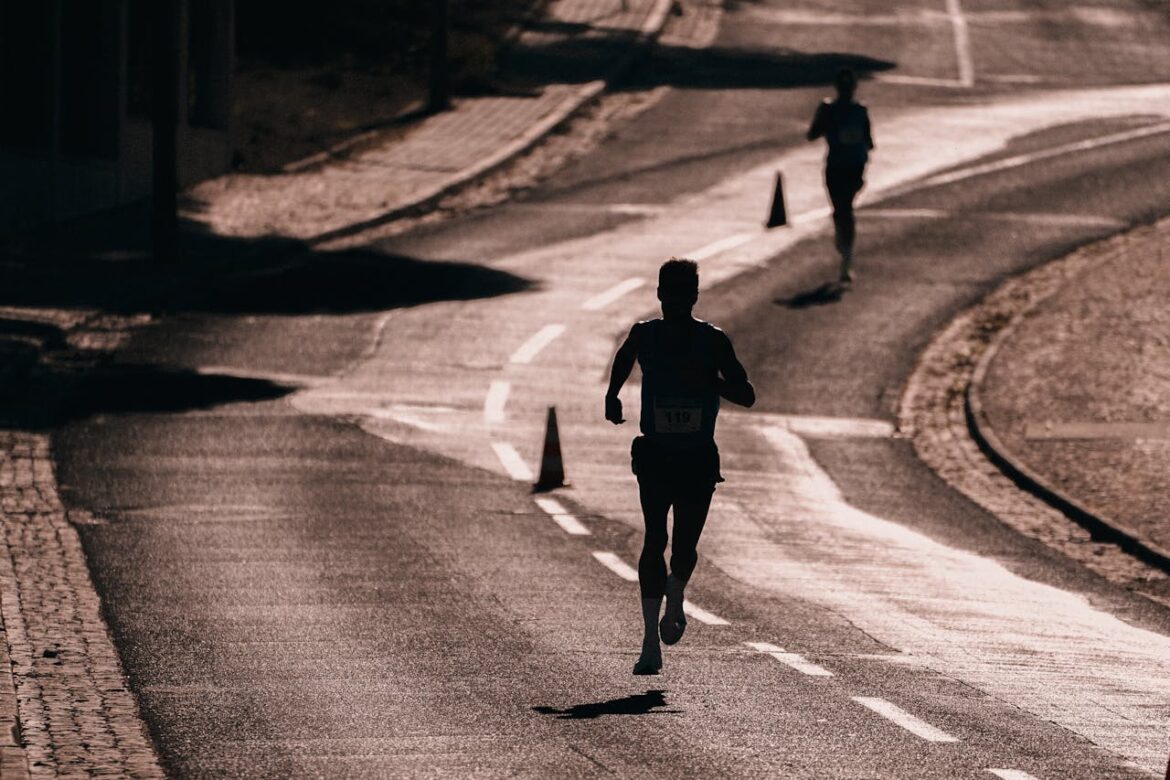Exercise is widely known to support heart health, boost mood, and enhance confidence. But what if too much of it—especially endurance training like marathon running or cycling—starts to interfere with your sex drive?
Surprisingly, recent research shows that chronic, high-volume endurance exercise may reduce libido in men. This article breaks down the science, what it means for athletes, and how to train smart without compromising your sexual health.
The Study That Sparked the Conversation
In 2017, Dr. Anthony Hackney and colleagues conducted one of the first large-scale studies to investigate how endurance exercise training affects male libido.
Key Study Details
- Participants: 1,077 healthy, physically active men
- Method: Online survey covering training habits, physical characteristics, and libido
- Published in: Medicine & Science in Sports & Exercise (2017)
Key Findings
- Men with higher training intensity and longer weekly duration were significantly more likely to report low libido.
- Those with low to moderate training intensity had 2.8–6.9 times greater odds of reporting healthy libido compared to those with the most intense routines.
- Similarly, shorter and moderate-duration athletes reported better libido scores than those training for the longest periods.
Conclusion: “Exposure to higher levels of chronic intense and greater durations of endurance training on a regular basis is significantly associated with decreased libido scores in men.”
— Hackney et al., 2017
Reference: Hackney, A.C. et al. (2017). Endurance Exercise Training and Male Sexual Libido. Med Sci Sports Exerc. PMID: 28195945
Why Does This Happen? Understanding the Science
1. Testosterone Suppression from Overtraining
Intense, prolonged endurance training is known to suppress testosterone production. Chronic exercise stress triggers a hormonal shift—increasing cortisol (a stress hormone) while reducing reproductive hormones like testosterone.
Low testosterone levels are directly linked to:
- Decreased libido
- Erectile dysfunction
- Reduced muscle mass and mood swings
In fact, a 2008 review by Hackney found that male endurance athletes often have 25–30% lower testosterone levels compared to sedentary controls.
2. Energy Deficiency and RED-S
Endurance athletes often enter a state called Relative Energy Deficiency in Sport (RED-S)—where the energy demands of training exceed food intake.
Consequences of RED-S in men include:
- Disrupted hormones (testosterone, LH, GnRH)
- Reduced libido
- Impaired reproductive health
- Poor recovery and fatigue
RED-S isn’t just about calorie intake—it’s about not having enough fuel left over after exercise to support normal body functions, including sexual function.
Not All Exercise Is Bad for Libido
It’s important to clarify: moderate exercise supports healthy libido.
Benefits of balanced physical activity include:
- Improved blood flow (essential for erectile function)
- Reduced stress and anxiety
- Higher confidence and body image
- Healthy testosterone regulation
It’s chronic overtraining—particularly in endurance athletes—that poses the risk.
How to Train Smarter and Protect Sexual Health
1. Periodize Your Training
Alternate between high, moderate, and recovery weeks. Don’t push max intensity every day.
2. Prioritize Sleep and Recovery
Aim for 7–9 hours of quality sleep. Inadequate sleep reduces testosterone levels and sexual desire.
3. Eat Enough to Fuel Performance
Monitor your caloric intake to ensure it matches your energy output. Avoid chronic energy deficits.
4. Listen to Warning Signs
Symptoms of overtraining affecting libido:
- Lack of morning erections
- Drop in sexual interest
- Unexplained fatigue or irritability
- Plateauing performance
If these show up, consider dialing back intensity and consulting a sports medicine professional.
Takeaway: Exercise for Performance, Not at the Expense of Libido
Moderate endurance training improves sexual health, but too much intensity and duration can harm it. As the research shows, men with the most demanding endurance routines were most likely to experience low libido.
The key is balance—train hard, recover well, eat enough, and keep an eye on how your body (and libido) responds. If you’re an endurance athlete noticing changes in sexual function, it might be time to reassess your training load and recovery practices.
Sources and Further Reading
- Hackney, A.C., Lane, A.R., Register-Mihalik, J., & O’Leary, C.B. (2017). Endurance Exercise Training and Male Sexual Libido. Med Sci Sports Exerc, 49(2):317–323.
- Hackney, A.C. The Male Reproductive System and Endurance Exercise. Med Sci Sports Exerc, 40(8), 1385–1389.
- Hackney, A.C., & Lane, A.R. (2018). Low testosterone in male endurance-trained distance runners: Impact of years in training. Hormones, 17(1), 137–139. PubMed ID: 29858867 doi:10.1007/s42000-018-0010-z. Search Google Scholar
